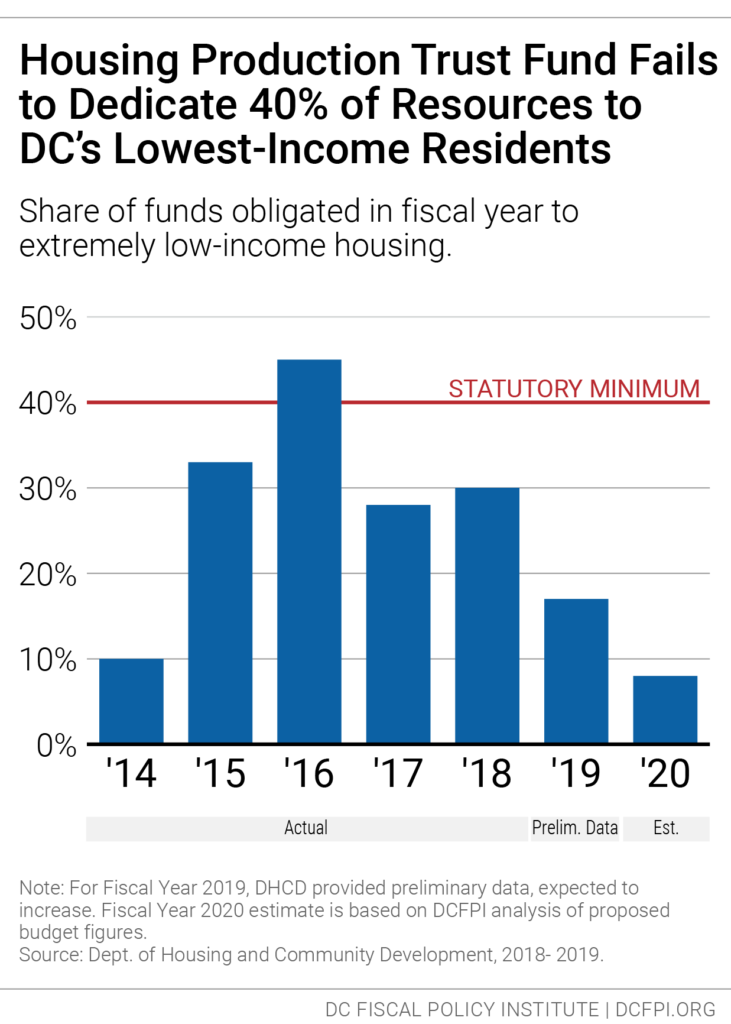Housing stability is the foundation of overall health and well-being for all of us. Having a safe and affordable place to call home is intrinsically connected to positive life outcomes in school performance, job retention, physical and mental health and economic security. About 19,000 DC children face housing instability that affects their ability to succeed in school. Housing instability is correlated with lower cognitive achievement test scores and lower measures of behavioral school readiness. Children who move frequently often fall behind and drop out of school.
Creating more affordable housing also is critical to addressing DC’s racial inequities. The enduring legacies of structural and individualized racism — racist zoning and residential segregation, redlining, restrictive covenants, practices barring federal employment and access to Homestead and New Deal programs, etc. —prohibited Black families from equitably accessing the housing and employment markets for years and continue to impact all communities of color today. Nearly 90 percent of extremely low-income, severely rent-burdened households in the District are headed by a person of color and most of them are Black. Addressing housing stability for these families is truly needed as the culture of historically Black neighborhoods and universities are at risk in the District and as Black residents are involuntarily displaced at alarming rates.
The Housing Production Trust Fund (HPTF) is the District’s primary tool to achieve housing stability for all DC residents. The Mayor’s proposed budget increases the District’s investment in the Housing Production Trust Fund to $130 million, up from $100 million in each of the last four years. This is commendable and reflects an important recognition that more funding is needed for affordable housing. However, DC law requires that 40 percent of Housing Production Trust Fund resources be used to serve families with extremely low incomes, which almost always requires HPTF resources to be paired with rental assistance from DC’s Local Rent Supplement Program (LRSP). The proposed budget includes just $1.5 million for LRSP tied to projects, far less than the $7 million needed to meet this targeting requirement.
Project-based rental assistance through LRSP covers ongoing operating and maintenance costs for developers and is critical to keeping tenant rents low. Without adequate investment in LRSP, projects built using the HPTF increase won’t be made affordable to extremely low-income residents.
The District has only met this targeting requirement once in the past five years (Figure 1). Under the proposed budget, the District would continue to fail to meet the statutory requirement that 40 percent of HPTF resources support housing for extremely low-income residents (those with incomes below $35,150 for a family of four). We estimate that under the level of project-based LRSP funding in the proposed budget, only 8 percent of HPTF-funded units will be affordable families with extremely low incomes. Therefore, we urge the Council to invest $7 million in project-based rental assistance in order to achieve HPTF statutory requirements and address severe affordable housing challenges impacting 27,000 District residents.

DCFPI testified about this issue this week. You can read the full testimony here.

